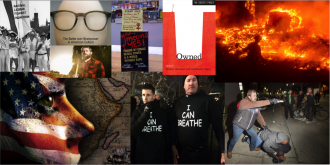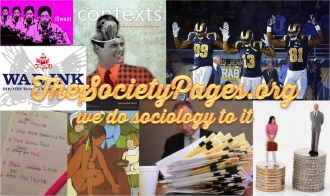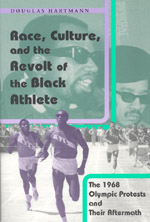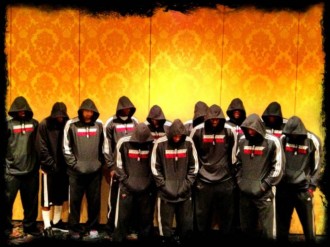What a night. What a disturbing, terrifying, disconcerting night. A questionable grand jury process. Explanations and pushback. Protests. Police, lots of police. Media everywhere. Some looting and violence. Gas and smoke. Images of burning buildings and cars—fiery images that seem to be on a continuous loop this morning, this difficult morning after. How to make sense of it all? What to say? What to do?I find myself thinking about the limits (and, indeed, pathologies) of a dispassionate—if accurate—sociological response in a moment of such historical crisis and upheaval. It doesn’t feel like enough. Necessary, but not enough.
I looked to and start with the President, President Obama, our President. The President’s words last night, in the immediate aftermath of the release of the grand jury decision, were measured, subdued, and multifaceted—begging for peace, pleading for calm and, more importantly, trying to get folks from all different sides with such divergent reactions to better understand each other. I saw our leader trying to explain why, on the one hand, we must respect the rule of law, our law enforcement agents, and the workings of the criminal justice system–as well as why, on the other hand, we need to understand, really understand, why there is so much anger and frustration and resentment from so many. It was very typical Obama—trying, cautiously and stoically, to be that voice of compassion and understanding, that bridge across racial and ideological and political lines, subtlety appealing to our common humanity, our bigger ideals, our better angels.
As a sociologist and a citizen, I found myself deeply sympathetic and aligned. In fact, it is probably the kinds of things I would have said if I had I been in the President’s shoes or on his speech writing team. Although I would have probably developed and further specified the deep and historical sources of anger and frustration—not only with respect to racial disparities and injustices within the criminal justice system at all levels, but also the legacies of segregated housing and lending polices, the realities of poverty, poor education, and unemployment, the persistence of so many stereotypes and racially charged images and rhetoric—I still would have asked for some kind of balance and some larger peace and understanding. In fact, much as Todd Beer in his SocSource/TSP post from earlier in the fall on “Teaching Ferguson,” I still believe that these deeply racialized and even racist historical forces, institutional policies, and contemporary realities—and the very different ways in which they are perceived and understood (or ignored or disavowed)—are crucial to both understanding and explaining both Ferguson the town and Ferguson the cultural firestorm. And this broader historical context and social conditions are all too often missing from media coverage, political discourse, and public understanding with their focus on the specific case in its immediacy and its concreteness. This in mind, I probably also would have also talked about the profound, deeply sociological challenge of confronting obvious, patterned, and systemic inequities of race in both the criminal justice system and the society at large without losing sight of the fact that the specifics of any given incident, event, or case are unique, may not stand in microcosm for the whole, and are probably not the appropriate focus for systemic, institutional change.Deeply racialized and even racist historical forces, institutional policies, and contemporary realities—and the very different ways in which they are perceived and understood (or ignored or disavowed)—are crucial to understanding and explaining both Ferguson the town and Ferguson the cultural firestorm.
But the problem is that all of this, at least as I was watching last night and trying to think it back through this morning, is a little too measured, a little too dispassionate. Part of this is that the whole abstract language of a multi-point, multifaceted analysis and perspective is a little bit too communitarian. That is, it is too heavy on the language of common understanding of our mutual situation when what we are really talking about is the extremely divergent reactions and response of very different and indeed radically polarized communities. There are specific sides and radically different perspectives here, and the stakes require responding to them on their own grounds. Ultimately, however, I think this response–both the President’s and my own—is unsatisfying at the moment, because it is too much about analysis and understanding, and not enough about action, response—what to do and who will lead. Too often the call for calm, clear thinking analysis and understanding—no matter how accurate, no matter how potentially useful—never gets to the next step. Good sociology, in short, does not always make meaningful leadership, much less transformative response and meaningful change.Too often the call for calm, clear thinking analysis and understanding—no matter how accurate, no matter how potentially useful—never gets to the next step. Good sociology, in short, does not always make meaningful leadership, much less transformative response and meaningful change.
Ezra Klein’s Vox column this morning (“Why Obama won’t give the Ferguson speech his supporters want”) helped give me a better sense of why Obama gave the speech he did. He is capable of more. Indeed, he did more–much more–on the campaign trail leading up to his historic ascendence to the presidency. But now, as President, he is in a different position. Obama’s challenge is not so much that he needs to try to speak to and represent the nation as a whole. Obama’s challenge right now, according to Klein, is that in our polarized political climate—and no figure is more polarizing than the President, according to the political scientists—anything Obama says on any given issue or cause, any specific position he takes or policy he argues for, tends to be damaging to the cause or any allies he may have. Obama and his advisors have—rightly, it would seem—realized that he is hemmed in and it is better for him to take a middle ground rather than inflame passions yet again. (Immigration, of course, is the exception to this, the arena where Obama and his team have decided to take the hit and fight the good fight, but that is a single and quite exceptional case at this point, as much about political position and institutional power as about rhetoric, understanding, and dialogue).
Ultimately, however, I find myself thinking not about Obama’s political challenges but about the limits and indeed pathologies of a dispassionate if accurate sociological response in a moment of such historical crisis and upheaval. Focusing on the roots and conditions as well as on the need for shared, overarching understanding just doesn’t seem like quite enough. Necessary, but not enough.
![]() Ta-da! Again, through no scientific process—unless you count some triangulation of popularity per Google Analytics, being published in 2014, and home office favorite-choosing as “science”—here are our choices for the best of Cyborgology, 2014:
Ta-da! Again, through no scientific process—unless you count some triangulation of popularity per Google Analytics, being published in 2014, and home office favorite-choosing as “science”—here are our choices for the best of Cyborgology, 2014:






